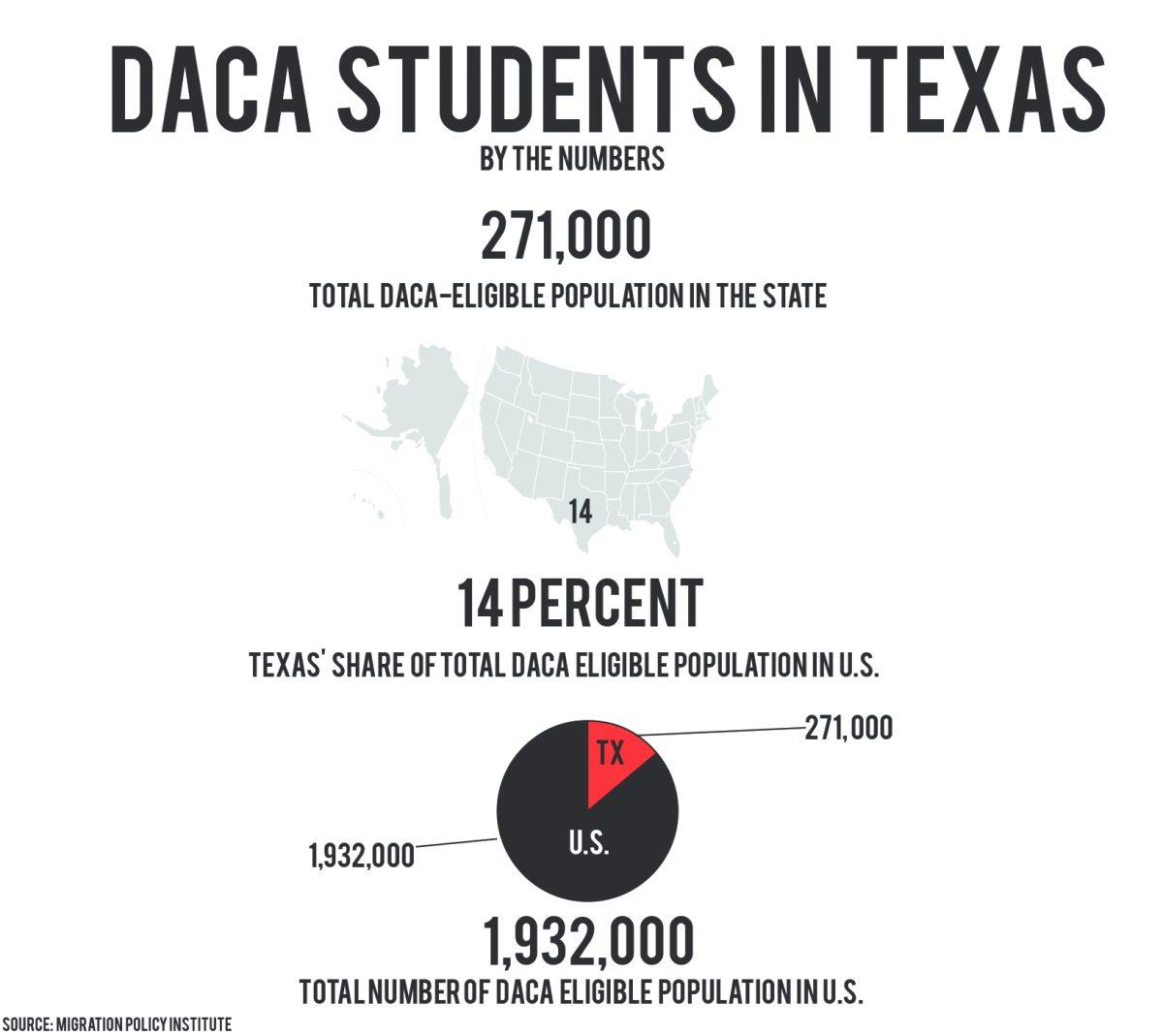In response to President-elect Donald Trump’s campaign promises to crack down on illegal immigration and deport millions of undocumented residents, students at UTD are petitioning the university to protect information about undocumented students from the federal government.
During his campaign, Trump said he would stop the Deferred Action for Childhood Arrivals program, which President Barack Obama started in 2012. The program allows undocumented immigrants without criminal backgrounds who came to the United States as minors to be protected from deportation and to get work permits. Currently, participants must renew their status every two years. As of June, Customs and Immigration Services has accepted 238,206 applicants.
Danielle Edmonds, president of the UTD chapter of the League of United Latin American Citizens, helped put together a petition to the university asking UTD to make a public statement in support of undocumented students. The petition also asks the university to protect information of DACA students if the federal government requests it once Trump takes office.
“Whenever our students elect to pursue higher education and go to university, they shouldn’t be punished for an act that ultimately is a hope for a better life for themselves and a demonstration of what they want to contribute to their community,” she said.
The petition went up on Nov. 30 and has gotten 400 signatures as of press time.
Students have taken similar actions at the University of North Texas and Texas Woman’s University. A petition to label UNT as a “sanctuary campus,” meaning the campus university would protect information about undocumented students from federal officials, has received more than 700 signatures. Students also organized walkouts on those campuses on Dec. 1.
In the event the federal government would target undocumented students, UTD Police Chief Larry Zacharias said university police are not tasked with enforcing such actions.
“What most people don’t realize is that most immigration violations are civil and not criminal,” he said. “So we actually don’t have any authority to enforce them. So the act of crossing the border is a criminal act, the act of remaining in the country then illegally is civil. So we don’t take civil enforcement and on a campus … we have no reason to ask anyone what their immigration status is.”
Under the Federal Educational Rights and Privacy Act, all student information, except enrollment status, their major and year and whether they live on campus, is protected. Law enforcement agencies do have access to information of students accused of criminal activity, however.
Dean of Students Amanda Smith, whose office handles disciplinary actions for students, says she does not keep track of whether or not students are documented.
“I won’t know if they’re undocumented,” she said. “An enrolled student here is an enrolled student and if they’re a student, they’re my student. I wouldn’t know. I would treat them as I would treat any other student on our campus.”
Zacharias said there won’t be any change from police on how they deal with undocumented students and university police don’t keep track of the number of undocumented students on campus.
On Dec. 1, Gov. Greg Abbott tweeted he would cut funding to any state campus that establishes sanctuary status.
Edmonds said even though any actions against undocumented residents by President Trump are still hypothetical, it is important for the university to take a stance on the protection of DACA students.
“This is a time where predictions or playing it safe hasn’t proved to be very effective,” she said. “We have to prepare for any kind of scenario.”
In a statement to The Mercury, the Office of Communications backed up UTD’s stance on acceptance.
“UT Dallas is committed to serving all students and providing educational, living and working environments that are welcoming and respectful of all members of our community.”











